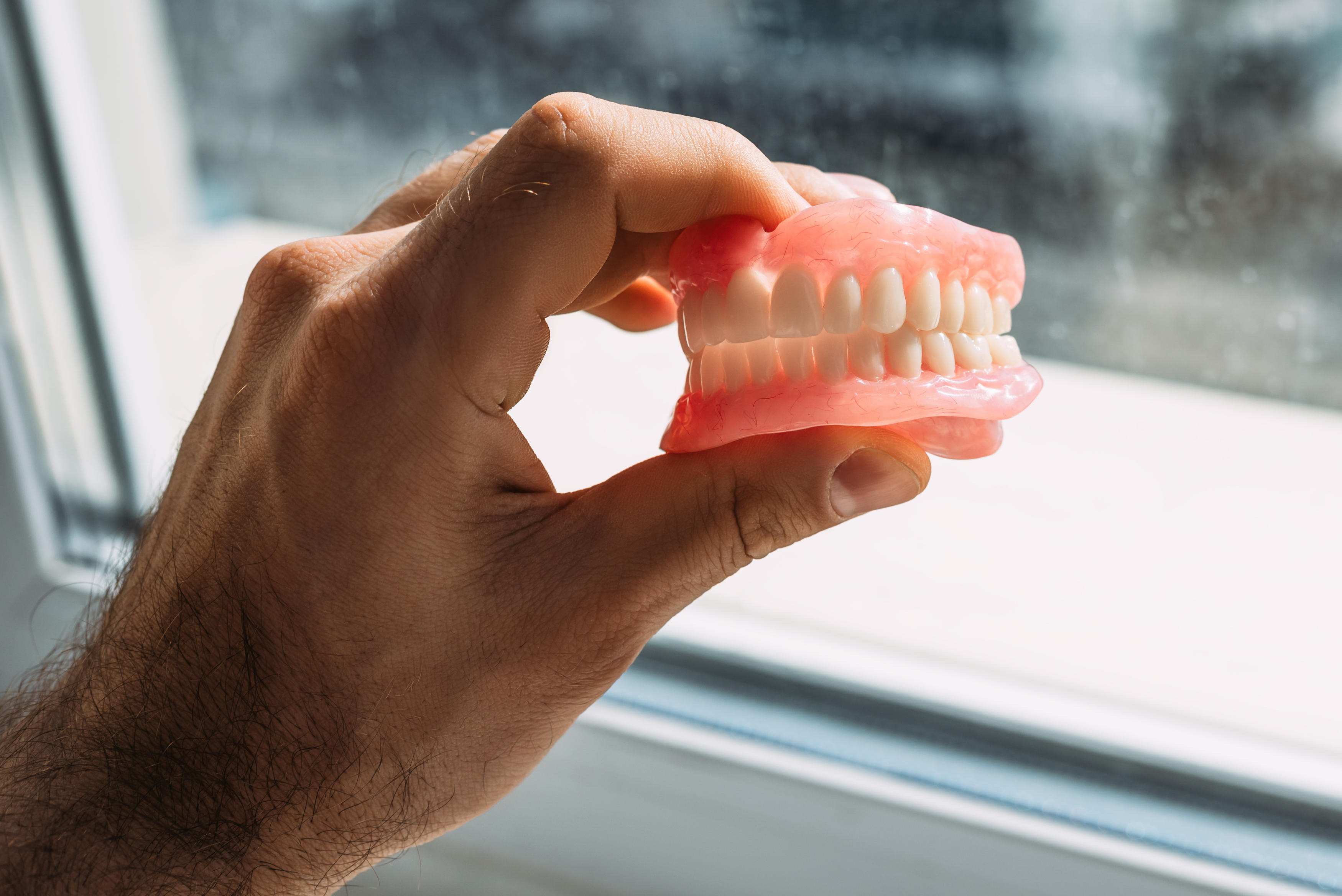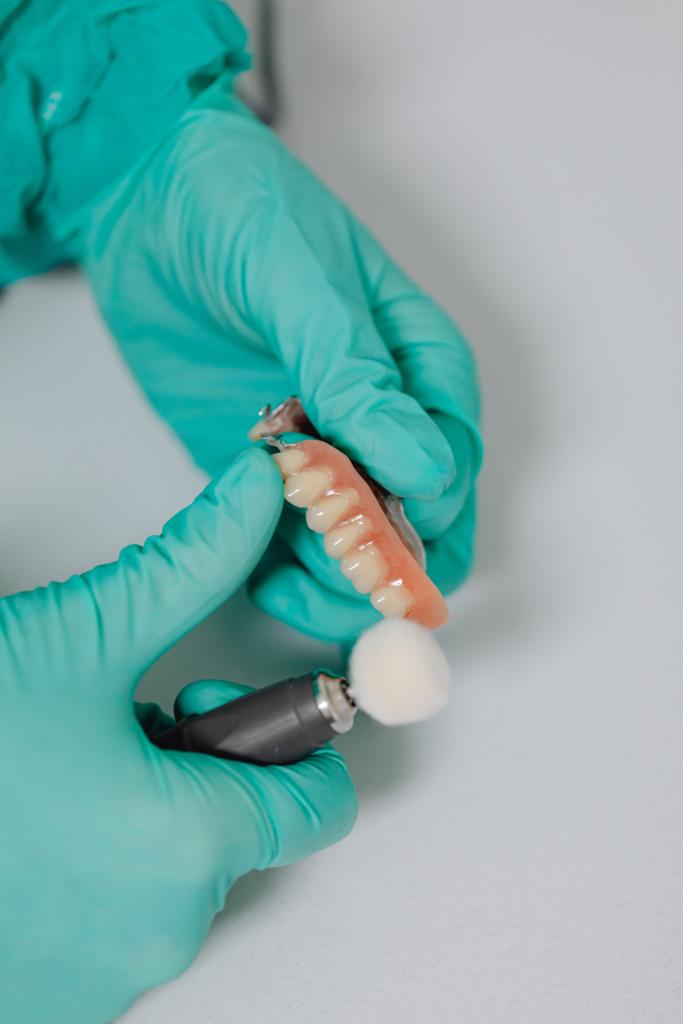
Denture Liners: The Pros and Cons
There’s a lot of buzz on the internet and on social media about denture liners. But many people, including denture wearers, really don’t understand them. What does a denture liner do, and how do you know if you need one? To clear up the mystery surrounding them, let’s explore the topic of denture liners in greater depth.
Denture Liners: The Deep Dive
Denture liners (a.k.a. relines) are the process of adding new material to the inside surface of a denture in order to improve the fit by filling in gaps where the denture is no longer flush against the gum tissue or palate. Their general purpose is to improve denture comfort and gain suction when suction has been lost.
Type of Denture Liners
There are different categories of denture liners based on their intended use. The categories include hard relines versus soft reline materials, temporary liners versus liners for long-term use, and chairside versus laboratory-processed liners. The intended purpose of the denture liner determines its name. For example, it is possible to perform a temporary chairside soft denture reline to improve an immediate denture’s fit.
In general, laboratory-processed hard relines made from denture resin last the longest, are the easiest to clean and care for, and look the most like the original denture material itself, making it difficult to tell where the liner ends, and the denture resin begins. This type of denture liner is used when your existing denture doesn’t fit quite as well as it originally did when delivered.
Soft relines are appropriate for patients with very resorbed ridges or very thin tissue that easily becomes sore. They aim to provide temporary relief to raw tissues, help improve retention, and distribute the forces more evenly on denture-bearing areas.
Chairside relines are best suited for short-term applications. Since they are performed directly in the patient’s mouth and are not processed with heat and pressure, they tend to become brittle and wear out rather quickly. Still, they have their purpose and can buy the patient time when new dentures or implant-supported denture treatment is in the works.
Denture Liners: Cons
While denture liners are designed to help improve denture fit, they have drawbacks. Let’s mention a few that impact most denture wearers.
Denture Liners Are Not a Cure-All
Denture liners aren’t designed to fix major issues with dentures. If your gums have undergone dramatic shrinkage since the denture was made or if you are using a massive amount of adhesive to wear your denture, no amount of denture lining material will resolve the problem. You need a new denture that is made to fit the shape of your gums in their current state.
Soft Relines Have a Limited Lifespan
How long do soft denture liners last? They are designed for short-term applications and generally last for a few weeks to a few months before they require replacement. Most soft liners are delicate and can be ruined by a denture brush or effervescent cleaners. While the idea of wearing a cushiony denture sounds great to many denture wearers, the soft material can become a petri dish for bacteria to grow, leading to thrush. This is another reason for changing soft liners at frequent intervals.
Home Relines
It is easy to mess up the bite or the appearance of the denture if you don’t properly seat it when performing a reline. An improperly placed denture can be a bigger issue than wearing a slightly loose denture because a reline that is not performed correctly will result in a denture that is looser than before.
Denture Liners: Pros
Denture liners can have positive benefits, both in the short term and for longer-term applications.
Extends the Life of Your Denture
If your denture has become slightly loose or a greater quantity of debris gets trapped under it, a lab-processed hard denture liner placed by a dental professional will actually improve the fit and make your denture last longer, saving you money in the long run.
Allows You to Receive Better Dental Care
If you currently wear dentures and are undergoing additional treatment, such as bone grafting or implant placement, a series of denture liners can allow you to continue wearing your existing denture throughout the healing and transitional phases.
Denture Liner Adhesive Tips
After your denture has been relined, there should be no need to apply denture adhesive. Instead, a properly performed denture reline will take up space between your gums and the denture, eliminating the need for denture adhesives.
Cleaning Denture Liners
Denture liners made from hard resin are easily cleaned like you clean dentures – with a brush and liquid soap or denture paste. They also can be soaked in effervescent denture cleaner for added freshness.
Soft liners require greater care to avoid tearing or damaging the lining material. Effervescent cleaners are not recommended for use on soft liners because the chemical properties of the cleaner will harden the soft texture of the reline. Brush the denture teeth and denture resin with liquid soap and a denture brush. The soft liner itself must be cleaned with cool running water and a soft cloth or a cotton swab applicator to remove and blot away debris. It is advisable to rinse the surface of the reline with hydrogen peroxide solution to minimize bacterial growth.
Expert Assistance at European Denture Center
Are you unsure what to do about your loose denture? Are you wasting money on adhesives or home remedies that don’t yield the results that you are looking for? The caring professionals at European Denture Center can help you make the best choice to improve the fit and comfort of your denture. Make a no-obligation consultation appointment today to see how comfortable dentures can be a part of your future.

